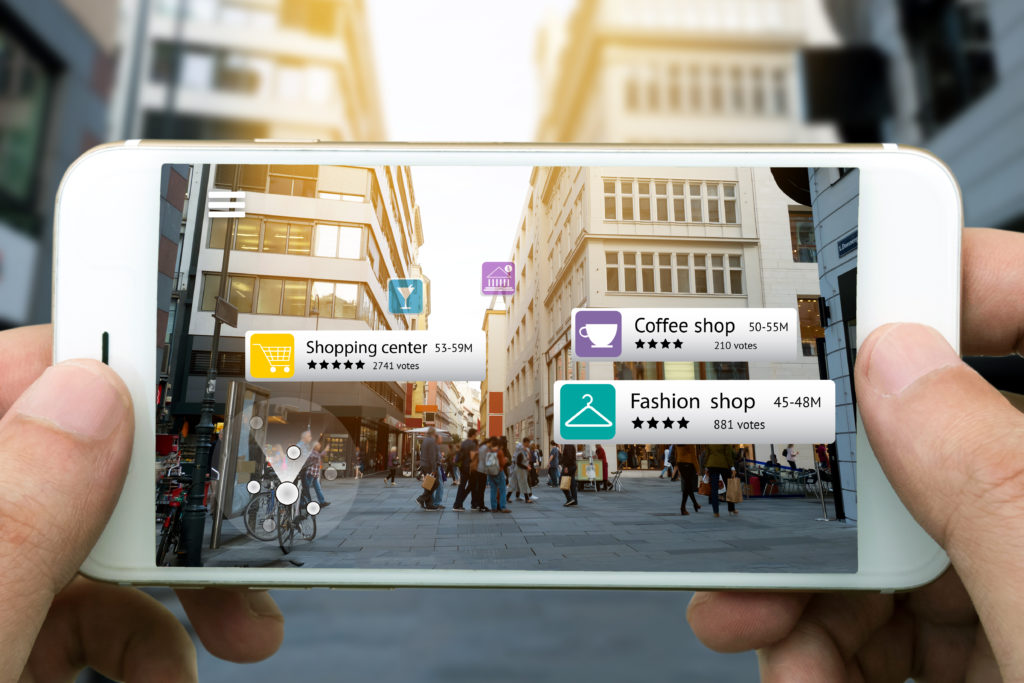Over the past 10 years, the retail sector has dramatically evolved. The industry has seen a shift in consumer behaviour towards online shopping and ultimately, e-commerce has changed the face of the market. In 2012, Anne Davies bought Room to Grow, an online children’s bedroom retailer and has seen the changing face of retail first-hand.

When asked about the evolution of retail, Anne says ‘retail is changing as consumers become savvier; as internet accessibility has increased and consumer confidence grown, its commonplace for shoppers to price check and find alternatives all at the touch of a screen. ‘
There’s no denying the high street has struggled when faced with these pressures. 2018 saw the once popular department store, House of Fraser, fall into administration, with Debenhams following suit in the spring 2019, before both being given a new lease of life. The struggles of prominent high-street brands, coupled with the high street favourite Topshop taking the strategic decision to close stores in more recent months, has many people asking why.
While it would be easy to blame online retailers for this demise and conclude that e-retail is the way forward, it’s not quite so simplistic. Anne believes ‘the future is omnichannel’. As consumers approach to shopping continues to evolve, its’s becoming increasingly more than just about a product and more about the overall experience.
A brick and mortar store, concession or showroom is important for customer interaction with a brand to build trust, but alone it’s not enough. An online presence, to complement the instore offering, is vital. The beauty of ecommerce is that businesses are not limited to space or restricted by physical presence. Thanks to their ecommerce position, Room to Grow are able to stock over 900 products, which just wouldn’t be possible in store. Taking a single category alone, there are over 60 different variations of cabin beds with a desk available alone, a huge offering that would take miles of floor space in a physical store.
An omnichannel experience is enough to survive now, but to thrive as we move towards 2025, where millennials will rule retail, it’s all about harnessing certain technologies at the right time and place, be that in store or online, to enhance the customer journey. Understanding the customer and their love for convenience, preference for immersive and interactive experiences, desire for complementary products or services and enthusiasm for content in varying formats is vital.
Technology, such as Artificial Intelligence (AI), Augmented Reality (AR) and Virtual Reality (VR) will help brands to interact with millennials and Generation Z’s and will be commonplace by 2025. When harnessed correctly, this technology will allow for a customised shopping experience.
Leveraging consumers mobile devices to engage with them both digitally and in person is practically a given, but how to get it right is the key. It’s important for brands to not cross the privacy line, as a sense of autonomy and remaining in control is key for millennials and gen Z’s. AR solutions can engage shoppers in a less intrusive way than sensor technologies yet can effectively allow stores to connect with shoppers and help them locate their desired product and receive virtual expert assistance, if required. Moving to 2025, this will develop further, with retailers able to utilise cognitive tech, using machine learning and natural language processing to better understand consumer behaviour. Through analysing online and in store browsing behaviours, as well as social interactions, content can be served at precisely the right time in the buying journey.
Artificial Intelligence is a technology that is currently harnessed by many brands. Think Alexa, which Amazon built to be a personal assistant, with other brands leveraging AI to offer Chatbots on site that can answer consumers questions 24/7. This tech does allow for customers questions to be answered quickly and efficiently, however, it’s by no means comparable to the personal experience associated with chatting to an expert when needing advice on products. Looking ahead to 2025, it’s expected that virtual assistants will become smarter and embedded with more and more AI, to better understand how to address users’ needs.
Virtual Reality technology is already widespread in industries such as gaming but is still fairly new to retail. VR is predicted to not only reduce marketing spend for retailers and reduce returns, but it also has the power to provide efficient analytics and data to inform marketing campaigns. VR has split experts’ opinions, with some naming it a ‘fad trend’ that will simply pass through time, but others are enthusiastic, thanks to its ability to enhance a customer’s experience with a brand and product. As an example, VR tech allows for a customer experience a virtual reality test drive through their smartphone, giving them a feel for the ride from the driver’s point as well as a 360-degree view of the car. Other proposed VR shopping experiences will see consumers able to use a virtual reality device that allows them to walk through a store and buy products along the way. Ultimately, VR has the power to help consumers visualise and virtually try before they buy.
Faced with the changing market landscape, retailers need not feel frightened. Change brings with it new opportunities to take businesses forward, in line with consumer demands. Armed with the knowledge of the customer, and the new and improving technologies that are enhancing the customer experience, the future of retail is exciting. It will help to increase word of mouth marketing.

